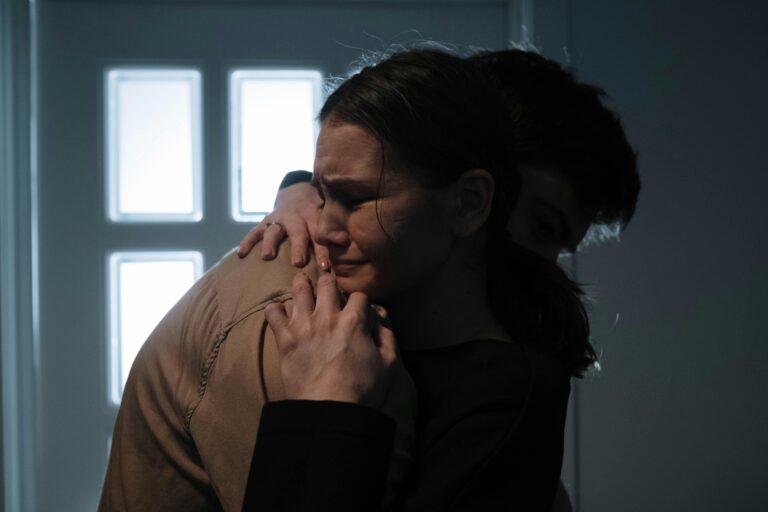24 July, 2024 – Cary Mac Arthur
Vulnerability (n): 1. Openness or susceptibility to attack or harm; 2. Willingness to show emotion or to allow one’s weaknesses to be seen or known; willingness to risk being emotionally hurt
Sounds fun, doesn’t it? Ranking right up there with getting a root canal without anesthesia.

What is It?
Vulnerability is a term that often evokes a sense of discomfort or even fear. It’s understandable; exposing our deepest thoughts, feelings, and insecurities can feel like stepping into a spotlight, naked and unguarded. However, it’s in this very act of vulnerability that the profound power of genuine connection in relationships lies.
When we allow ourselves to be vulnerable, we open the door to deeper intimacy, trust, and mutual understanding.
Vulnerability is one of the cornerstones of healthy and authentic relationships.
Why Vulnerability Matters
Vulnerability is one of the cornerstones of healthy and authentic relationships. It allows us to show up as our true selves, without pretense or masks. When we are vulnerable, we communicate a willingness to be seen as we are, with all our imperfections and strengths. This openness fosters an environment where real connection can thrive. It signals to our partners, friends, and loved ones that we trust them with our innermost selves, which, in turn, encourages them to do the same.
In the words of Brené Brown, a researcher known for her work on vulnerability and shame, “Vulnerability is the birthplace of love, belonging, joy, courage, empathy, and creativity.” By embracing vulnerability, we invite these positive experiences into our lives and relationships.
What Gets in the Way of Vulnerability?
Despite its importance, many of us struggle with being vulnerable. Several factors can hinder our ability to open up:
- Fear of Rejection: One of the most significant barriers to vulnerability is the fear that our honesty will lead to rejection. We worry that if we reveal our true selves, we won’t be accepted or loved.
- Past Experiences: Previous experiences of being hurt or betrayed when we were vulnerable can make us hesitant to take that risk again. These emotional scars can create a protective barrier around our hearts.
- Perfectionism: The belief that we need to be perfect to be worthy of love and acceptance can prevent us from showing our authentic selves. We may hide our flaws and vulnerabilities, fearing they make us unlovable.
- Cultural and Societal Norms: In many cultures, vulnerability is seen as a weakness. This societal conditioning can discourage us from expressing our true emotions and needs.
The Role of Safety in Vulnerability
Each of us has a foundational need to know that we matter and feel safe with the important people in our lives. Feeling safe in our relationships fosters trust and connection, supports emotional health, encourages growth and development, reduces stress and anxiety, boosts self esteem, enhances communication, and promotes physical health. No wonder it’s so important, right?!
Many of us confuse safety with a lack of risk, leading us to avoid vulnerability and even turn away from the people we should feel safe with! However, we cannot feel safe alone. Safety is a crucial relationship variable that often requires taking a risk! To feel safe, we must be willing to seek comfort and safety through vulnerability. It is a leap of faith that can be daunting, but it’s essential for building trust and deeper connections.
Taking the Risk
To cultivate vulnerability both individually and in your relationships, consider these steps:
- Embrace Imperfection: Accept that vulnerability means showing your imperfections. Recognize that these imperfections are part of what makes you human and lovable.
- Do Something Vulnerable Every Day: Take some time to recognize some of the things that you stop yourself from doing in the name of “safety,” and choose to do one vulnerable thing every day.
- Practice Communicating Openly: Start by sharing your thoughts and feelings honestly with your partner. Expressing your emotions, even the difficult ones, sets the stage for mutual vulnerability. It’s ok to start small. Consider planning 5-minute daily stress-relieving conversations with a loved one into your day.
By taking these steps, you can begin to break down the barriers to vulnerability and foster a deeper sense of connection in your relationships. Remember, the journey towards vulnerability is ongoing and requires continuous effort and courage. But the rewards—a stronger, more authentic relationship—are well worth the risk.
